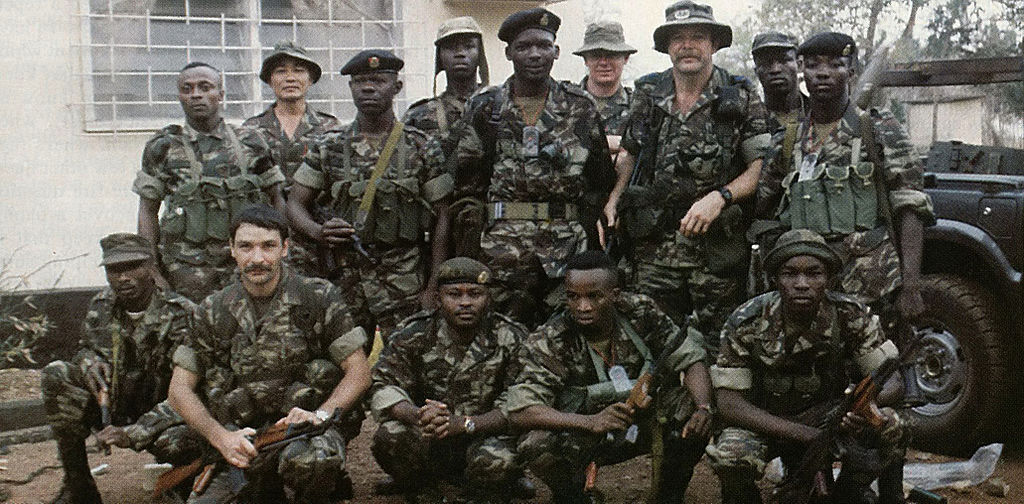It was not too long ago that the limelight was shone on private military and security contractor scandals in the Middle East and Africa. Since then one could argue that there has been a cultural shift in how they are portrayed in the media. Mostly gone are the days of movies depicting a ragtag group of mercenaries on a mission to save the world, like the A-Team. Now, in a more self-conscious society, they are the stand-ins for the antagonists previously portrayed by “evil ethnic stereotypes”. These days, there seems to be no greater villain than greedy, unethical, powerful corporations. Even governments are portrayed as bending to their will. But few realise how necessary PMSCs are for modern armies and even fewer approach the debate with level-headedness afforded to other topics.
Cultural depictions have in some ways left the debate contorted and unnuanced. Talks of installing a “viceroy” by Eric Prince (former head of the Blackwater PMSC) have done little to help for the man does not represent the entirety of the PMSC industry. The fact of the matter is that PMSCs have entrenched themselves as a necessary cog in almost any nation’s way of war.
Contrary to conventional perception, most of the industry lies in either consulting, training, or logistics. Proportionally, there is very limited “frontline action” as they are barred by international law to do so. A lot of soldiers in the US will at some point receive training from a private contractor, for example. Furthermore, ‘PMSC’ is an umbrella term which can primarily be applied to any civilian operating in a war zone for profit. This could be from private security to truck drivers delivering food supplies.
This is not to say that the days of PMSCs encountering combat are long gone. International laws on the use of mercenaries are just as powerful as any international law, meaning it depends on the strength of the ones enforcing it. PMSCs offer certain deniability and freedom from responsibility for governments. Private contractors’ deaths are rarely considered in statistics on how well a war is going. When killed, unlike an enlisted soldier, they rarely return in coffins draped in their nation’s flag. In a perhaps sinister and macabre way of thinking, PMSCs offer bodies for attrition that don’t have to be counted.
The discourse against their use has been inflamed by rhetoric, a lot which does not seem to consider their significance to the modern army. Opponents of PMSCs tend to paint them as remorseless for-profit-killers at worst, and at best “take the cash and run” charlatans. Their allegations have some truths behind them as the PMSC industry is littered in scandal: murders, rapes, human trafficking, and coups d’état.
As with any multibillion-dollar business, there are always forces seeking to validate its existence. The industry is topped with lobbying efforts with cost saving and job-creating narratives. Although the jury is still technically “out” on these claims, studies raise doubts on these claims.
PMSCs of large scales tend to show a level of embeddedness with governments that inoculate them somewhat from the market forces. If they are protected from market forces, then they can’t claim that said forces drive them to “efficient solutions”. The story on the smaller scale seems just as bleak as cost-saving measures have reportedly led to some firms hiring men with less than proper training.
The question then remains: do PMSCs have a place in a Liberal democracy?
A force with no accountability to ‘the people’ should not exist within a democracy, much less a liberal one. War is destructive and messy, and soldiers are human. There has rarely been a major war which did not involve its share of war crimes, some not out of malice, but a misunderstanding in high stake situations. National and international structures have been created to address these situations and used to bring perpetrators to justice, but PMSCs seem to occupy a gray area giving them a relative amount of immunity.
If we hold that no individual is above the law, then this should be especially true of the men and women who are entrusted to cause violence on behalf of society. Circumstances should obviously be considered, but the law must be applied, and the defendant judged against said law. When PMSC’s are employed as soldiers they must adhere to the same standards. but history has shown that they, are not and there is little incentive to do so. It could even be argued that the fact that they don’t is what makes them competitive in the market place.
This is not to say that the industry does not hold some of the most proficient well-trained men and women in the world. Despite the objection in using them as combatants; it is undeniable that they provide a wealth in knowledge and training, but they must operate under an accountable framework. Common sense tells use that it should be easier to hold them accountable outside of a combat zone. PMSC’s should continue to provide the logistics and training necessary, but we need to keep them away from combat situations.
The laws and morals we apply during times of war are what sets military conduct apart from barbarism.

